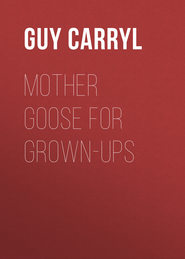По всем вопросам обращайтесь на: info@litportal.ru
(©) 2003-2024.
✖
The Lieutenant-Governor: A Novel
Настройки чтения
Размер шрифта
Высота строк
Поля
He paused to relight his cigar, and then continued.
"The Rathbawne Mills are like the fruit of my own body to me. I love them! I love every stone and brick of them, that I've put in place, as it were, with my own hands. I've often thought that if they should burn down it would come close to killing me. And yet I could watch them go with a lighter heart, God knows, than that with which I foresee the misery that's coming to these people of mine, who are going to starve at the bidding of a band of black-legs, and that not even because they think their cause a just one, but simply because they can't help themselves. It isn't only that ruin's staring me in the face, though there's that possibility in the situation, too, but that privation, bitter misery, and despair are lying in wait for them. God! – what an iniquity!
"But I can't give in, Broadcastle – I can't give in, John Barclay! It means the sacrifice of a principle I've held out for, and that I know is right. What's more, it isn't as if I were yielding one point. It would only be the beginning. If I give in now, I might as well turn over the mills to McGrath at once, and let him run them according to his own blackguardly will. You know how such things go. Give them an inch" —
"And they raise a hell!" put in Colonel Broadcastle.
"Exactly! It's commercial suicide. And yet, if I don't yield, I'm precipitating disorder, and bloodshed, and the untold suffering of four thousand souls. What am I to do?"
"Fight 'em!" said Colonel Broadcastle, with a sharp nod of his head.
Rathbawne turned from him to the Lieutenant-Governor, and to the latter, knowing the man he had been, there was something indescribably heart-rending in the sudden, irresolute trembling of his half-raised hands, the slow shake of his head, and the pathos of his raised eyebrows and drooping lips.
"John," he said, "I'm an old man, and you're a young one, but I'm a plain citizen, and you're the Lieutenant-Governor of Alleghenia. You know how things stand. Now, I've given you my girl, and after that it's not much to put myself into your hands as well. I'm getting on. My strength isn't what it was. I'm not as fit to stand such a struggle as this is bound to be, as I was thirty years ago. I look strong, but, in reality, I'm not. My doctor has warned me, more than once. A sudden shock – you know what these medical chaps say about sudden shocks! I've laughed at him, of course, and yet – I know there is truth in it. I've been up against hard propositions, but never one as hard as this. I've had big responsibilities, but never a responsibility that I felt as I feel this one. If I hold out, I know what people and the newspapers will say, – how they'll blackguard me, – but I'm not afraid of that. I'm not even thinking of it. No, and I'm not thinking of what the strain may mean to me. Every man's turn is sure to come – why not one way as well as another? But what I am thinking of is the result upon the lives of these people whom I've made, as surely as if I were another Creator. And McGrath's another Beelzebub! There's a fight on between us for the salvation of a little world of four thousand souls! But I'm not God! I can't act with the conviction of omniscience. I've been the most independent of men. I've made my own fortune with my own brains. I've done as I saw fit, and the results have seemed to indicate that I've been oftener right than wrong. But now, I'm at a loss. It's not the men I'm thinking of so much. They ought to be able to make their own way, as I've made mine. It's the women and children dependent upon them – the women and children who have no voice in the matter, and yet who are bound to suffer most by a strike. I've got to think for them. I've reached a crisis – a cross-ways – and I've got to choose which course to take – and I can't! All my experience counts for nothing. I've never – you probably know it – asked for advice before. But now I must have the unprejudiced, the outside point of view. I've always thought there was a clear, unmistakable boundary between right and wrong, but now there's some right in the wrong, and a big sight more of wrong in the right! I've heard Broadcastle's opinion, and I want yours. If you agree, I'll go by what you say. As I said before, John, in this matter I'm the individual – you're the state. I'll go by what you say. What shall I do?"
Peter Rathbawne's words had wrought tremendously upon the Lieutenant-Governor. He answered slowly, looking down, and with a perceptible tremor in his voice.
"Mr. Rathbawne, you and the Colonel know how high-sounding my title is, and how little, in reality, it means. There is no need to go into details. I'm Lieutenant-Governor of Alleghenia, yes! – and as helpless in the cause of right as a new-born baby! If I could by any means, in any manner, support the advice I gave you, I would give it willingly."
"John!" said Peter Rathbawne, "I don't mean that. I've put the case wrongly. Give me your counsel, not as Lieutenant-Governor, but as my friend, and the man who loves my daughter!"
The Lieutenant-Governor raised his eyes from the finger-tips with which, as the other was speaking, he had been plucking at the cloth.
"Fight them, Mr. Rathbawne," he said, "and may God help you – because I can't!"
V
A BRAND FROM THE BURNING
More heartsick than he cared to confess, even to himself, the Lieutenant-Governor left the Rathbawnes' earlier than his wont, despite the fact that his host and Colonel Broadcastle were still engaged in discussing the impending situation, and that Natalie, with a batch of new music, was waiting for him at the piano. He pleaded an unusually busy day and his consequent fatigue as an excuse, and so, at half after nine, found himself about to light a second cigar, on the steps of the Rathbawne residence, and shivering a little in the night air, which stung the inside of his nostrils and set his eyes watering. Raw as the day had been, it had turned colder now, but the night was superbly clear. The sky seemed to have drawn nearer to the earth, and the stars twinkled so sharply and clearly against its deep blue-black that they resembled in form their conventionally five-pointed counterfeits of silver paper. A brisk wind whirled a few dried leaves in whispering eddies across the smooth asphaltum of the driveway, but beyond this and the peevish sputtering of the arc-light on the opposite corner there was no sound. It was the kind of night which, with its crystal clearness and its steely intensity, stirs the normal pulse to keen exhilaration: yet never had John Barclay felt more hopelessly dispirited, more utterly at a loss to see the way before him. That anxiety, distress, possibly actual disaster should be impending over this house where lay his heart, his happiness, and his hope, was sufficiently disturbing in itself. That he should not be able, despite his position, to raise a hand to avert the calamity was worse. But that the battle was to be a battle for the right, and yet, as it seemed, foredoomed from the start to end in disaster, since no aid could be expected from the strong arm of the law to which the partisans of principle turn naturally for support: this was worst of all. For out of dangerous surroundings he felt himself able to snatch away the littlest and most lovely woman in the world. She, at least, should not suffer. And out of this nightmare of powerless prominence, of impotent position, he himself could retire into private life, and be no less a man than he had been before. But from the reproach of corruption which had fallen upon her, and the impending slur of anarchy, who was to rescue Alleghenia? The Lieutenant-Governor set his lips and drove his nails into his palms, as he stood in the shadow of the Rathbawnes' doorway, looking up at the sky of the February night. He was not a religious man – as the term goes – but in that moment he said a better prayer for the welfare of his state than had ever lain upon the lips of any priest in Kenton City!
He was about to strike his match when an instinct rather than an actual perception of movement arrested his hand. Bradbury Avenue, upon which stood the Rathbawne house, was situated in one of the quieter residence districts which prided itself on the turfed spaces between its dwellings, pretentious enough for the most part, and the double rows of trees which lined its thoroughfares. It was one of these trees which, at the moment, attracted Barclay's attention. It lay in a direct line between himself and the arc-light on the corner, and its trunk, in some miraculous manner, had abruptly developed an elbow, and then an arm. The Lieutenant-Governor was still staring at this phenomenon when it was as abruptly explained by the sudden emergence from shadow of a man, who had apparently been standing on the side of the tree nearest to the house. He was crossing the avenue obliquely when something about his bearing caused the Lieutenant-Governor to lean forward and follow him intently with his eyes. It was all there, as Natalie had said – the lifted shoulders, the bent head, the unmistakable, pathetic air of the beggar. Then, as he neared the light, he gave a short upward strain to his neck and chin, the impatient movement of a man whose collar annoys him. The trick was too familiar to have been forgotten. The next moment Barclay's heels were pounding on the asphaltum behind him, and then Barclay's hand fell upon his shoulder and whirled him round.
In the oddly intense radiance of the arc-light above, which cut sharply across the surface of forehead, cheek, and chin, and left heavy shadows like those in a roughly blocked-out carving, under brow, nose, and lower lip, the two men faced each other briefly, in silence. Then the Lieutenant-Governor voiced the other's name, hardly above a whisper.
"Spencer Cavendish!"
And the other, echoing the tone, if not the words, replied: —
"Bar-clay!"
A square away, the lights of a hansom winked into the avenue, and the hoof-beats of the horse clonked on the pavement, unaccompanied by any sound from the smoothly trundling, rubber-tired wheels. Barclay stepped to the kerb, and hailed the driver with his stick. The cab drew in, stopped, and threw the divisions of its apron wide, like two black hands extended in cordial welcome.
The Lieutenant-Governor turned to his companion.
"Get in," he said. "I want to have a talk with you."
The drive of a mile and more from Bradbury Avenue to Barclay's quarters in the new bachelor apartment-house "Rockingham" was accomplished without the exchange of a word. Once, he felt his companion shiver, and dragging a rug from under them, he spread it across their knees. That was the only movement on the part of either. They sat, side by side, looking straight before them over the horse's bobbing crupper, until the hansom pulled up sharply before the broad and brilliantly illuminated entrance of the "Rockingham." As they passed in, Cavendish had a passing impression of tiled floors, columns of green marble, and attendants in tightly fitting green uniforms with brass buttons. Then an elevator whirled them up to the eighth floor, deposited them in a square hallway, and vanished again, with the little page in charge wrinkling his nose and biting the thumb of his cotton glove.
"Wot's the Loot'nt-Guvnor up to now, Sawed-Off?" inquired the doorkeeper genially, as the elevator returned to the ground floor.
"Ide'no!" replied the little page with equal affability. "Goin' in fer pol'tics, I guest. Jeest! Wot a slob it wuz – wot?"
The Lieutenant-Governor unlocked the door of his apartment, touched an electric button which flooded the little hall and the drawing-room beyond with light, and, entering the latter, went directly to a closet in the wall. Unlocking this, he took out a jar of biscuits and a decanter, and setting them upon the table, turned once more to his companion.
"Put away a couple of those biscuits and a glass of sherry," he said, "and then we'll talk."
"I'm past biscuits," said the other, almost sullenly.
"I'll see to that," replied Barclay. "They are only by way of a starter."
He passed into the hall as he spoke, and presently Cavendish heard the click of a telephone receiver slipping from its crotch, and Barclay's voice speaking, to some one below, of a steak, vegetables, salad, and coffee. He stepped to the table, devoured two or three of the biscuits ravenously, poured himself a glass of sherry, sipped, and then swallowed it, and flung himself down upon a wide divan.
"Have you a cigarette?" he asked, as Barclay reëntered. "I haven't smoked in three days. That's worse than mere hunger, you know."
"I believe you!"
Barclay pushed a silver box across the table, and seating himself opposite, touched a match to the cigar which he had been about to light at the Rathbawnes' door, and which he still held between his lips.
"Help yourself," he added. "Your supper will be up presently. Meanwhile, shall I fire away, or will you?"
Cavendish let the first smoke from his cigarette curl slowly up his cheek before replying. In the full light now first resting upon it, his face showed as that of a man approximately Barclay's age, but pinched by want, and deeply lined by dissipation. His under lids were puffy and discolored, and a dozen heavy creases ran, fan-like, from the corners of his eyes. Hair already turning white and an unkempt mustache and beard completed the picture. His clothes were faded and frayed, no linen was visible, and his boots were cracked and soggy. There was nothing about him to suggest the former estate of gentleman save his hands, which, while thin and tremulous, were clean and well-kept, in singular contrast to the slovenliness of his attire.
"Age before respectability," he said in reply to Barclay's question, with a shrug. "I'll go first. It will save your asking questions. We parted in anger, Barclay."
"Let that pass," put in the Lieutenant-Governor, briefly. "Two years wipe out all scores as petty as was the cause of our quarrel."
"Well, then," continued Cavendish more easily, "when I left Kenton City, it was with the best intention in the world of making a fresh start in some place where my story wasn't known. I went to New York. I had a little money, but only a very little, and not the most remote idea of how difficult it is for a man to make his way in a place where he is unknown, particularly if he has no credentials and is too proud to ask for any from his old associates. Moreover, I'd been drinking hard for six months and there was no such thing as clipping it short all at once. I had an idea of tapering off, and perhaps, if I had found a job, I might have done so. As it was I climbed up one step and fell down two, and that went on indefinitely. It wasn't as if I'd had a distinct aim or anything in my life which made it seem worth living. I didn't half care. I'd set my heart on something which I couldn't get, and – well, never mind that. It is all as long ago as the Flood! I got work now and again, tried reporting, and teaching, and copying. But each time it was a grade lower, and I stuck to nothing but the whiskey – except when I had a little more money than usual, and then it was absinthe."
He touched his eyes, and then raised his hand to the level of his chin, with the fingers held wide apart and rigid, and watched it tremble for an instant in silence.
"I haven't seen a mirror in weeks," he went on, "but I know the signs are all there. That's the story. I could string it out for an hour, but it would all be in the same key. I've simply been going down, down, down. I'm what the old judge called me – do you remember it came out in the 'Record?' – I'm a common drunk, Barclay. And I don't care! I've been on the point of putting an end to it many a time – but I always held out for another drink! Now, even my pride's gone. It stuck to me longer than anything else, but it's taken itself off at last. I've been feeling lately that I'm pretty near the end, and I wanted to see Kenton City again before it came. That's the reason I walked all the way from Pittsburg, and I've been begging on the streets since I got in. I thought nobody would recognize me."
"But I did," said Barclay.
"Yes, and – and" —
"Yes, and she did! She saw you this morning, but before she took in fully that it was you, you were gone in the crowd. She was half heart-broken over it, and made me promise to look you up. I was going to do so, when I tumbled against you by chance to-night. You were watching the house?"
"Yes, for the last time. I saw she had recognized me and that Kenton City was no place for me. So I was off again to-night. Is she" —
"She is well, and, I am glad to say, happy. We are to be married in the autumn."
A smile hovered for an instant on Cavendish's lips.
"God bless her!" he said slowly. "I'm glad of it. But don't let's talk of that. She's as far above me as the stars!"
"And as far above me, too, for that matter!" answered Barclay. "Here's your supper. While you're eating, I'll take my turn at the talk."








